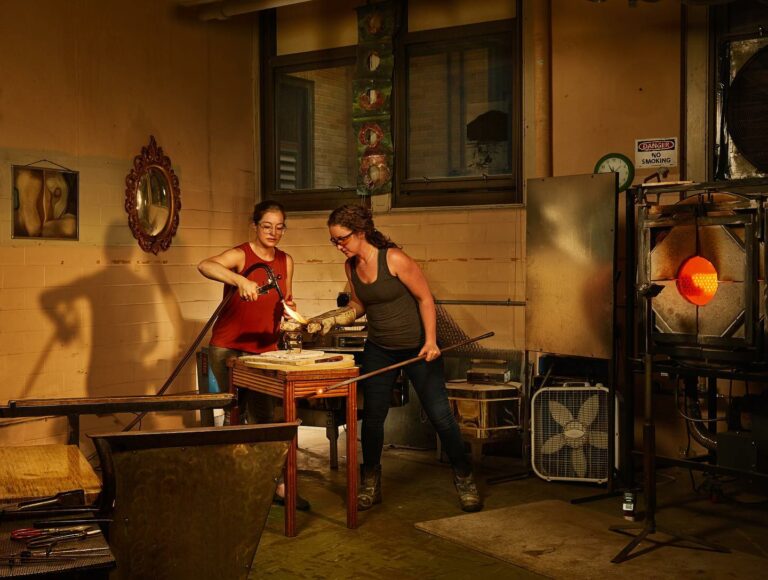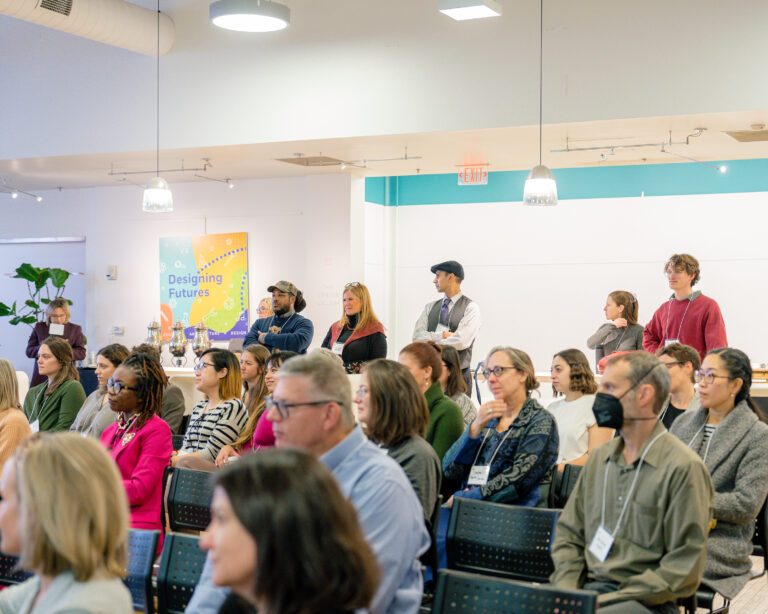The Circle Compost Story
It is thrilling.
Any book on the shelf, conversation with a stranger, or bit of information that you encounter might challenge you in such a way that you have no choice but to respond.
Sure, for some — ok, more than some— it has become expected practice to suppress information that might call into question the status quo.
But for others, there are moments in their lives where they crash into a piece of information that sets them on a new course of action — a moment where the individual is incited to think maybe I’m the one who responds.
For Dave and Michele Bloovman, it was a graph.
Dave was stunned at the large percentage of organic materials in landfills.
This is not just rotting food that will disintegrate. No, this is troubling, because food scraps in landfills generate methane (CH4), a greenhouse gas.
“Pound for pound, the comparative impact of CH4 is more than 25 times greater than CO2 over a 100-year period” (EPA). (Dig a little and you will find independent researchers who cite a more dangerous impact.) The release of methane is caused when materials decompose in an anaerobic environment.
Further, when organic waste breaks down in a landfill instead of being turned into compost, soil is robbed of the biological, chemical and physical improvements that result from the application of nutrient-rich compost to topsoil. In addition to being more fertile, healthy soils also aid in protecting watersheds: “Compost helps reduce stormwater runoff because it can hold approximately five times its weight in water” (ILSR).
Learning about the amount of organic materials in landfills was a seed of information they could not shake. As it grew and over time, Dave and Michele continued to think about how they could address this issue.
“We are both do-ers,” said Dave. “It was on my mind a lot; it was on her mind a lot. We were constantly talking about it, and once we felt the opportunity was right to dive in, we did not hesitate.”
Fast forward and now their business, Circle Compost, just completed their first year of operations. Last Friday, August 4th, was the one-year anniversary of their first compost pick-up.
Circle Compost is “a company born from a desire to prevent food waste, leaves, and other organic discards from being landfilled. [Their] goal is to change people’s perception of organic materials that have traditionally been considered trash, and provide people with a simple, zero emissions, localized alternative to throwing these organic materials away” (Circle Compost).
True to their commitment to sustainability, 90% of their pickups are done via bicycle.
Not only does Circle Compost’s service aid to lighten customer’s weekly trash output, but customers also benefit from knowing that their “non-meat food waste, paper, cardboard, yard and plant waste, coffee grounds, and more” are being used to create healthy soils for local urban gardens and farms instead of breaking down and releasing methane in landfills (Circle Compost).
Currently, Circle Compost is collecting between 1500–2000 pounds of organic material a week. As the company continues to grow, measuring their environmental impact is a integral part of their growth plan.
Sam Holloschutz, Circle Compost’s Chief Sustainability Officer, has taken the lead on determining the best systems for tracking numbers on how their work is decreasing carbon emissions. (He also does pickups on one of the bike rigs.) Sam reached out to Dave and Michele after reading a Green Philly Blog article during the early days of the company. His conviction that compost has a positive environmental impact matched with theirs, and they formed a team soon thereafter.
A year into business, Circle Compost has experienced success, but there is still a lot of work to do. “Our mission is to keep organic materials out of landfills, and there’s a lot of organic materials out there,” said Dave.
Dave expressed that even though they are facing a giant, they remain rooted in the purpose of their company’s mission. While some might succumb to the fear of failure, Dave and his team are moving forward, slingshots in tow.
“I think fear of failure is probably one of the big things that hold people back from taking those steps to do something,” said Dave. “There’s always obstacles, and when we hit those obstacles, I will keep in mind that no matter what happens, this will always be worth doing for me.”
Not being afraid of failure also allows Circle Compost to remain nimble when necessary. Initially, they were brainstorming how to use a vehicle that had been converted to run on vegetable oil. When they determined that it was not a long-term sustainable solution, they pivoted to bike pickups. When the right technology exists, they might be able to incorporate an electric pickup truck into their route. As they grow, the Circle Compost team will accept new challenges with the health of the planet, their staff, and their business in mind.
As their staff grows, employees will continue to enjoy not only a livable wage and the assurance that they are making an impact each day, but they also get a lot of exercise biking the pickup routes. As more and more consumers and institutions turn to composting as a solution, the community would also see an increase in available, safe jobs.:
“On a per-ton basis, making compost alone, employs 2x more workers than landfills and 4x more than incinerators” (ILSR).
The horizon is bright for Circle Compost. Each day, more and more consumers are being educated about the need to rethink waste, especially organic material. Dave, Michele, and Sam have big goals for scaling up their measurement system, and due to their success, they also plan to deliver finished compost to customers one or two times a year.
Dig deeper on the issue of waste and landfills, and maybe you too will read something that incites you to act.
To learn more about Circle Compost, their services, and why composting has a positive impact on the environment, click here.
Further reading:
New York City Department of Sanitation Composting Program
Infographic: Compost Impacts More Than You Think




